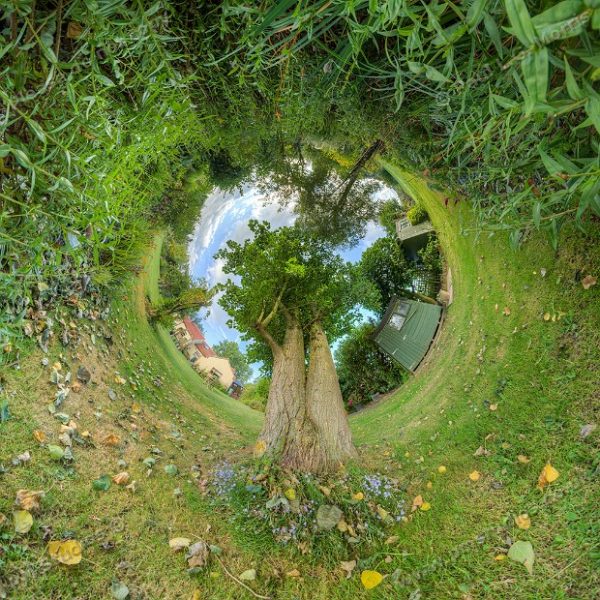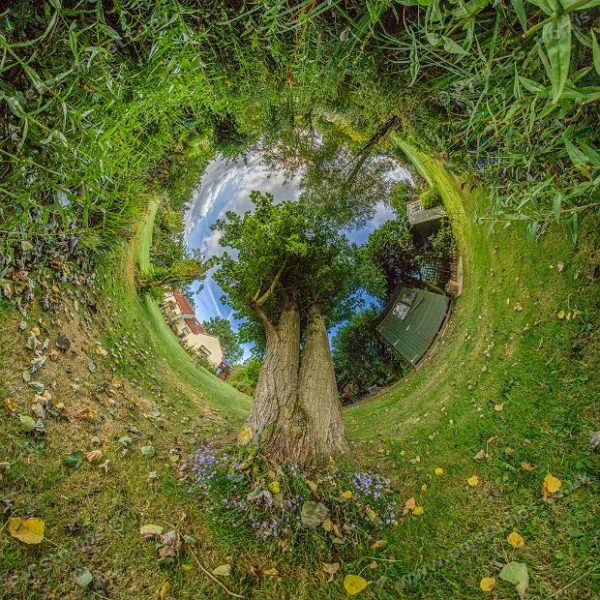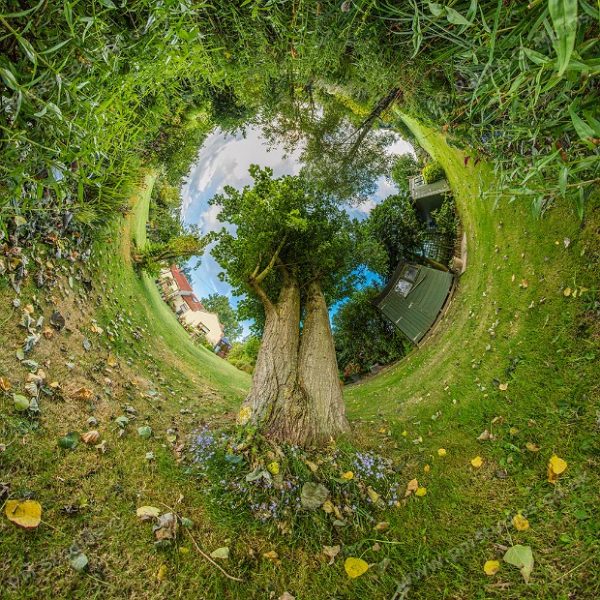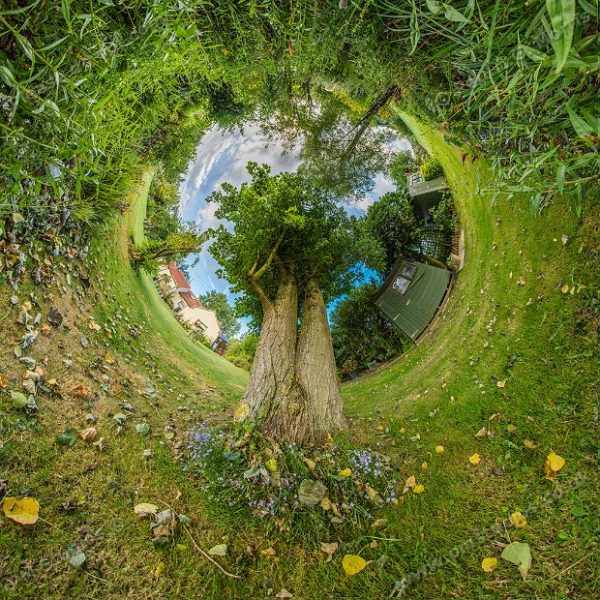This post may be a little technical but if you are not interested, just look at the photos!
This is an inverted Little Planet of a poplar tree in the garden:

This is from the direction that shows the harebells flowers at the base of the tree (compare to my previous post). Technically, this is from a 5 exposure at 2 stop HDR set. Most of the shadows are illuminated sufficiently with no noticeable noise. The highlights are fine except some of the clouds in the direction of the sun. I managed to get these images fairly early in the morning while it was relatively still so there is minimal ghosting. The main downside is a lack of sharpness compared to the single-exposure versions – this is not noticeable with these web resolution sized images.
This second image is from the -2 stop part of the HDR set. At this resolution it looks OK but there is a lot of noise in the shadow areas as I had to compensate for the -2 stop under exposure as well as lightening the shadows. However the highlights are reasonably well controlled:
This next image is from the ‘normal’ exposure of the HDR set. In this image the noise in the shadow areas is better controlled but a lot of the cloud detail is burnt out which spoils the image:

So, what I did for this final version is patch some of the cloud and sky detail from the underexposed version into the above image giving this final result:

That looks a bit better…
A lot of work though and with am old, slow computer, it takes a lot of processing time. Still, I have learnt a lot from this exercise. Which is the best though? I keep going between the first (HDR) image and the last (sky patched in) – I can’t make up my mind…
